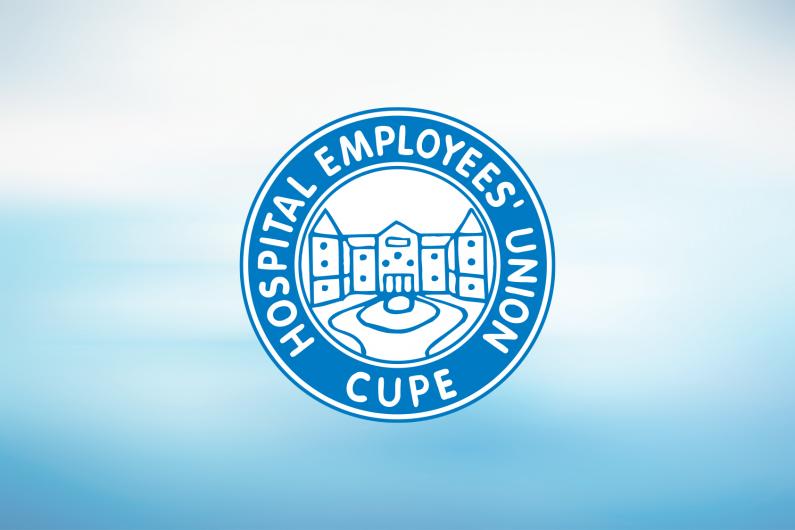• Three-quarters (75.2 per cent) have experienced pandemic-related burnout
• More than one in four (26.1 per cent) are worried that their housing is at risk

[BURNABY, BC] – Two years into the COVID-19 pandemic, a new poll finds health care workers in B.C. struggling with their mental health, and worried about making ends meet at their current pay rates. One out of three (34.4 per cent) are looking to leave health care altogether.
The telephone survey of more than 800 members of the Hospital Employees’ Union paints an alarming picture of the pressures facing those on the frontlines today, and of our ability to retain and recruit health care workers in the future.
HEU secretary-business manager Meena Brisard says health care workers have endured risk and uncertainty, and shown incredible courage and commitment through the pandemic, but the stress has taken its toll.
“There’s no question that many health care workers are at the breaking point, exhausted by all they’ve been through,” says Brisard. “And we should all be very concerned about what that means for our health care system going forward.”
Three quarters of those polled (75.2 per cent) experienced pandemic-related burnout, and one in three (32.9 per cent) do not believe there are adequate mental health supports in the workplace.
Nearly two-thirds (64.1 per cent) say their workloads have gotten worse over the last two years, and a quarter (24.9 per cent) report that their employer rarely or never backfills positions left vacant by illness or vacation.
And health care workers are having a tough time keeping up with rising costs, with more than a third (35.8 per cent) of those polled saying they are less financially secure than two years ago. More than a quarter (26.1 per cent) are concerned that their housing is currently at risk.
“Health care workers have carried the weight of this pandemic on their shoulders for all of us,” says Brisard. “Now is the time to recognize these workers with a wage and compensation package that puts them ahead and not behind.
“If we want our health care system to survive and thrive in the face of public health emergencies, climate disasters and growing demographic pressures, we must act boldly to retain today’s skilled and experienced health care workforce, and to attract the next generation of health care workers.”
The random phone survey of 802 health care workers took place between February 22 and March 2 and is accurate to within +/- 3.3 percentage points, 19 times out of 20. It was carried out by Viewpoints Research under commission by the HEU.
The polling sample consisted of HEU members who are part of the facilities subsector and covered by a provincial master agreement that includes hospitals, care homes, health authority corporate offices and supply chain operations.
HEU is leading negotiations on behalf of a multi-union bargaining association with public health employers for a new collective agreement covering 58,000 workers in the facilities subsector.
Backgrounder included in PDF